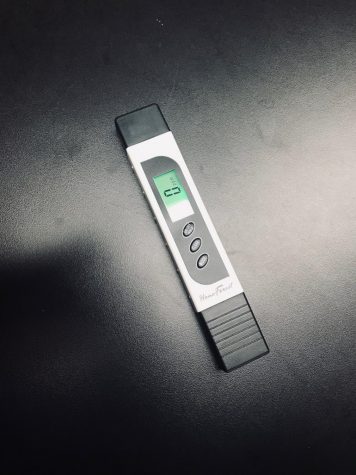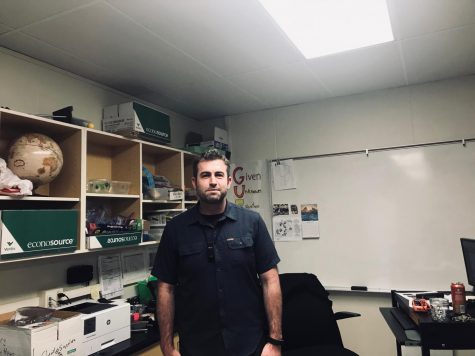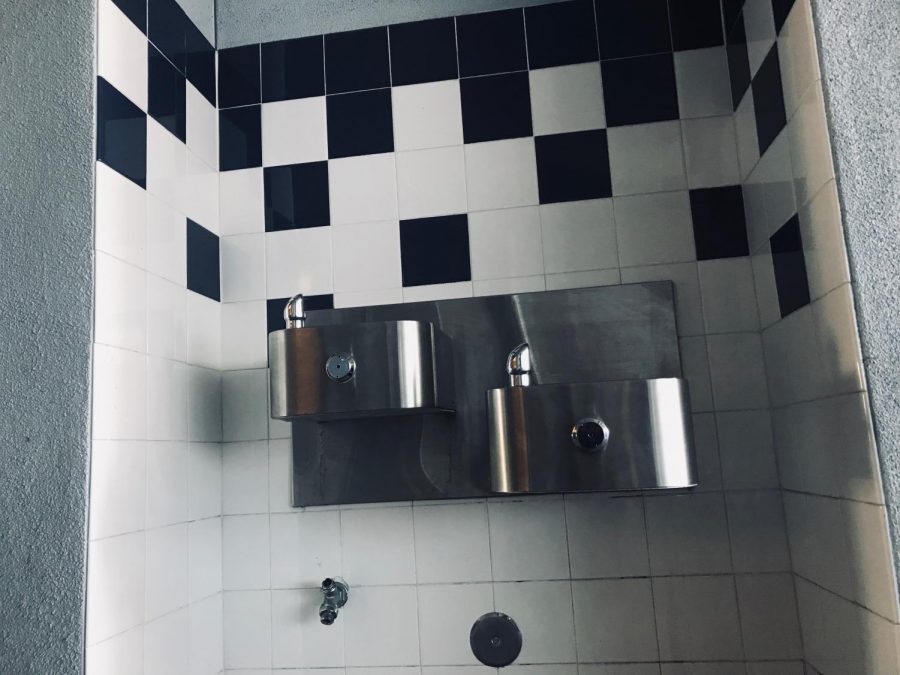Science Teacher Still Concerned About Water Quality
Though within federal standards, Mr.McGarrah’s tests noted a considerable difference in water quality between his personal tap and the school’s water fountains.
Considering the issues raised about water quality in previous years, Mr. Shawn McGarrah, a science teacher at DHS, wanted to establish whether “the water [he] was regularly drinking is something that was good or safe.” It’s important to note that though Mr. McGarrah’s independent study yielded interesting results, water quality is within acceptable levels.
To conduct his tests, Mr. McGarrah utilized a device that sends an electrical current through water and measures the resistance of that current, revealing the presence of nonwater molecules, including metals, in that water. Mr.McGarrah tested a total of four water fixtures in the portables, receiving readings of 393 parts per million at a regular water fountain. When he tested the water in the staff room, Q-11, readings were even higher at about 423 parts per million. Though these are acceptable levels, he explained that they are “on the higher side of FDA regulations.”

Furthermore, when he tested water straight from the tap at his home for comparison, he received readings of 140 parts per million, a considerable difference. Though they are unlikely to be risking their health by drinking from the water fountains, as Junior Anna Thattacherry stressed, “it’s important for students to be aware of this difference, and the composition of the water, so as to make better informed choices about where they’re getting their water from.”
While Mr. McGarrah has made other staff members aware of the results and his concerns, he stressed that he wasn’t prepared to deem the water unsafe. However, he found the preliminary results to be alarming and definitely worth further exploration. In particular, as a next step, Mr. McGarrah believes it is important to identify the composition of the molecules he detected in the water. To put it in his words, he is “concerned with what dissolved solids the measurements were detecting. Those levels of heavy metals could present serious concerns but the results could pertain to something less concerning, like salts.”

In late 2017, in response to higher than acceptable levels of lead in drinking water in neighboring districts, Dublin Unified School District tested water at schools throughout the district. During preliminary testing, two sites, including Dublin High School, were found to have elevated levels of potentially toxic metals.
At DHS, the preliminary test results found copper levels in water fixtures ranging from 620 to 1600 parts per billion. Considering that federal regulations deem copper to be safe in drinking water when below the 1300 parts per billion level, water fixtures at DHS were shut down until further testing could be conducted.
Over the summer, working in conjunction with the Dublin San Ramon Services District and Zone 7, DUSD was able to establish that there was no copper issue at the source. Furthermore, repeated testing of water fountains failed to yield the high copper readings that had initially caused concern. Testing from Water Dynamics, a certified private facility, also confirmed that water from drinking fountains and water bottle filling stations was safe. It has been assumed that the elevated levels were caused by a stagnant line that had since been flushed and no longer posed a health risk.
Towards the beginning of the school year, correspondence from the district office confirmed for parents that drinking water “on the DHS campus, and all DUSD campuses, is widely available and safe for consumption.” The email also explained that, as a precaution, DUSD flushes all water fountains during breaks and conducts regular tests to detect contamination.
Though Mr. McGarrah doesn’t have sufficient evidence to determine whether the current results are correlated to previous issues or even indicate potential health risks, they are clearly worth further exploration to ensure students are aware of the water quality at water fountains.
Your donation will support the student journalists of Dublin High School. Your contribution will allow us to purchase equipment and cover our annual website hosting costs.

Kaushikee Nayudu is a senior at Dublin High and the Editor-in-Chief for the Dublin Shield where she enjoys writing articles covering a diverse range of...



































